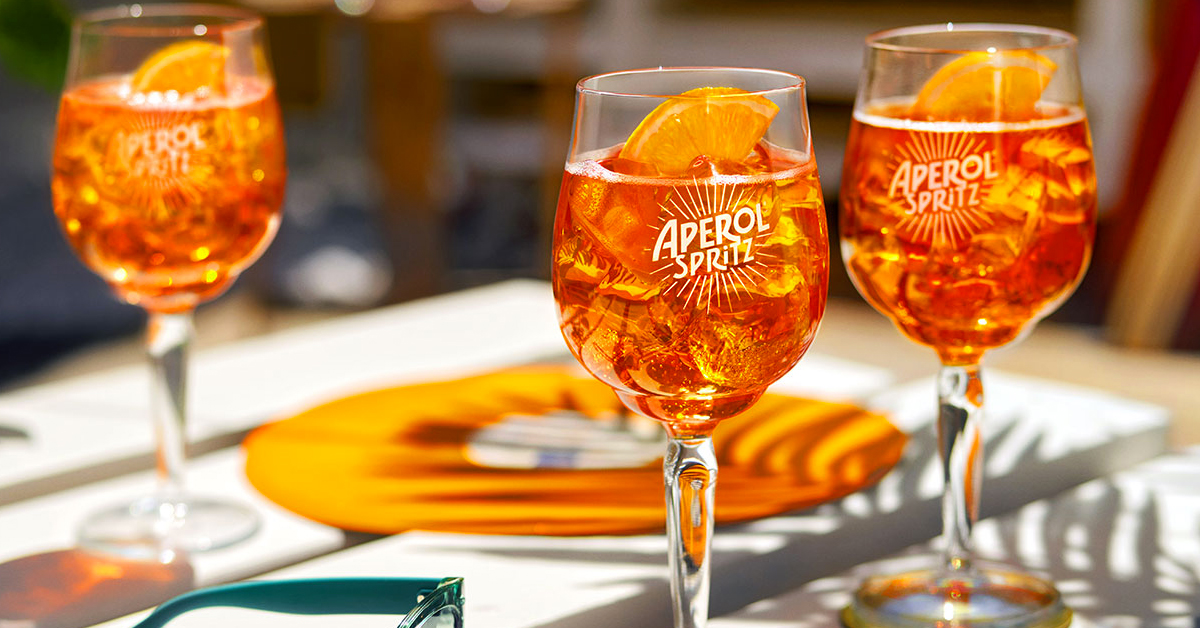
Italian spirits group Campari reported 19.6% organic growth in its first quarter, and expects growth — fueled by aperitifs and tequilas— to hold up in the U.S., the company reported during its Q1 earnings presentation yesterday.
The producer of major aperitifs reported quarterly net sales of $732.8 million, up 24.9% on a reported basis. The sales rise was credited to “positive brand momentum” especially in aperitifs, tequila and bourbon. Growth was also driven by multiple price increases, shipment phasing and an early Easter calendar.
Sales in the Americas (nearly half of company sales) were up organically by 19.5%. The group’s largest market, the U.S., grew by 23%, thanks to the double-digit growth of Espolòn (66.9%), Wild Turkey bourbon (18.9%) and Aperol (72.6%), as well as the triple-digit growth of Campari (153.6%), which benefited from “strong consumer demand” and price increases.
Despite dips in U.S. sales reported last month from Pernod Ricard and Hennessy, Campari Group CEO Bob Kunze-Concewitz remained optimistic about the economic resilience of its portfolio’s target market.
“If you look at our key categories, which are American whiskey, bourbon, tequila, those are very strong categories as well as the aperitifs, which we, obviously, are the only ones playing there,” he said to investors. “Compared to some of our peers, we’re actually targeting more young urban professionals who aren’t really being impacted currently by the economic situation and are maintaining a very active lifestyle.”
Around the globe sales were also positive. Southern Europe, Middle East and Africa accounted for 29% of total group sales and experienced growth of 23.5% during the quarter, led by Italy (up 21.6%), its largest market in the region. North, Central and Eastern Europe contributed to 16% of total group sales during the quarter, and reported organic growth of 16.0%. Sales in the group’s smallest region, Asia Pacific, increased organically by 14.5%, and Australia reported 5.1% growth.
The group’s Global Priorities segment (58% of group sales) registered an organic growth of 22.0%, driven by the company’s largest brand, Aperol, which rose 43.6% despite the tough comparison base (71.9% in Q1 2022), benefitting from a “resilient consumer environment, particularly in the on-premise.”
The company decided to significantly “up our game in terms of activations of Aperol in the key U.S. market,” Kunze-Concewitz said on the call, which kicked off at the Coachella Music Festival last month. Campari also increased by 23.9% globally, with sales growth dominating in Italy and the U.S.
The Wild Turkey whiskey portfolio rose by 26.9%, mainly thanks to the U.S. and South Korea market, with high-end Russell’s Reserve “outperforming” at 88%. Skyy vodka also rose by 20.8%, due to a positive shipment performance in its core U.S. market as well as growth in international markets. Destocking in the U.S. took a hit on Grand Marnier, which declined by 30.7%.
The company’s Regional Priority brands segment rose by 27.3%, driven by Espolòn. As tequila continues to rise, the group expanded its agave spirits portfolio with the launch of a new ultra premium tequila, Mayenda last month. The brand’s “very proprietary process” is expected to differentiate it between higher-end competitors, said Kunze-Concewitz. An international expansion campaign for the tequila brands, particularly Espolòn, is expected to launch 2024.
More sustainability targets were also announced by the company, which upped its pledge to reduce greenhouse gas emissions from direct operations and supply chain operators, use renewable electricity, and reiterated its goal to reach zero net emissions by 2050.